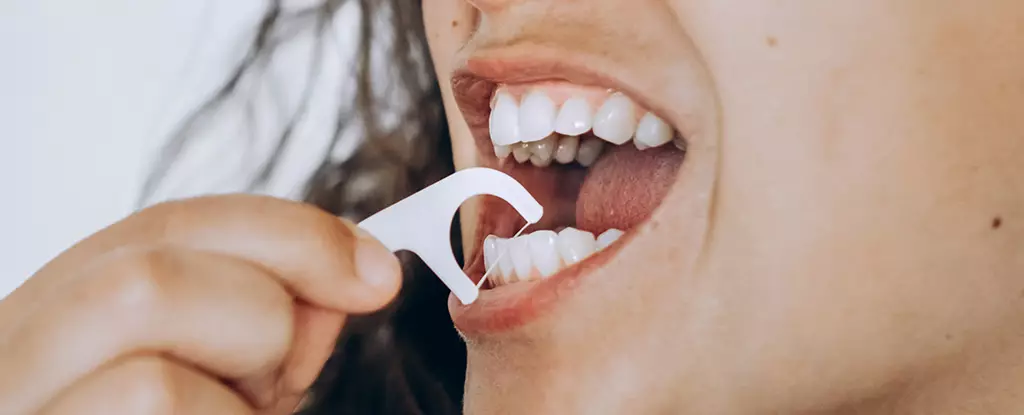In a world where self-care is increasingly prioritized, the advent of “smart floss” developed by researchers from Tufts University presents a fascinating confluence of dental care and mental health. The idea of utilizing dental floss – a tool synonymous with mundane daily routines – to monitor stress levels through saliva analysis is both ingenious and perplexing. Not only are we expected to maintain our oral hygiene, but now we are also capable of keeping an eye on our mental wellbeing right from our bathrooms. But amid the excitement lies a question: is this groundbreaking innovation a genuine solution to stress management, or is it merely another piece of health-related gadgetry that masks deeper societal issues?
Innovation Meets Routine: A Unique Approach
Sameer Sonkusale, an electrical and computer engineer and one of the masterminds behind this innovation, posits a pertinent truth: stress measurement doesn’t have to provoke additional anxiety. His proposition to fuse a health-monitoring device seamlessly into a daily habit is both practical and appealing. By capturing cortisol levels – a well-documented stress marker – via saliva, the smart floss stands as an enviable solution to the often intrusive nature of stress tracking. However, while it promises convenience, it also risks trivializing a complex emotional experience. Are our daily minutiae merely opportunities for tech companies to market further conveniences, or can they indeed empower us to take control of our health?
The Challenge of Objectivity in Stress Monitoring
One of the glaring issues with existing methods of stress assessment is their inherent subjectivity. Self-reporting is fraught with biases and perceptions that can skew data, while conventional cortisol tests often necessitate intrusive blood samples. Herein lies the allure of smart floss; it offers a voice for our stress without the jargon-laden psychological tests. But the fundamental question looms: does capturing cortisol from saliva provide a sufficiently accurate representation of stress? It is primarily a physiological measure that does not encompass the holistic nature of emotional wellbeing. While this tool could potentially better our understanding of individual stress levels, reliance on a singular data point could lead us astray.
The Material Advantage: eMIP and Its Implications
At the heart of the smart floss’s technical innovation is eMIP – a fascinating material that forms the backbone of cortisol detection. This molecularly imprinted polymer allows for rapid adaptation and low costs in producing biosensors, creating an exciting opportunity to monitor various health markers, from hormone levels to glucose. While this technological edge positions the smart floss as a versatile health tool, it raises concerns regarding the potential overreach of technology in personal health. Will we soon find ourselves at the mercy of algorithms dictating our emotional states based on saliva samples collected during our flossing routines? If so, we must ponder the ethical implications of such a dependency on technology for our mental wellbeing.
A Cautious Step Forward in Health Monitoring
Despite its promise, the smart floss is still in its developmental infancy. As researchers acknowledge, while it may prove invaluable for monitoring health conditions, it is not positioned as a diagnostic tool. With biological markers varying widely among individuals, its application may be limited. Furthermore, we must tread carefully in a society already riddled with anxiety about health metrics, fearing that such devices could exacerbate a culture of constant self-evaluation and comparison. The gold standard for diagnostics remains blood tests, and while smart floss may provide supplementary insights, we need to carefully evaluate its role in the broader context of health management.
While the prospects of this innovative device stir excitement, we must remember that it is not the panacea for combatting chronic stress and its related vulnerabilities. As we embrace such technological advancements, one must advocate for a balanced approach—leveraging the conveniences they offer without succumbing to the disquieting narratives they could perpetuate. The true challenge lies in maintaining a sense of agency over our health while wading through the conclusion that mere tools cannot replace a more nuanced understanding of wellbeing. Wouldn’t we fare better seeking support from robust mental health practices than through our dental care?

